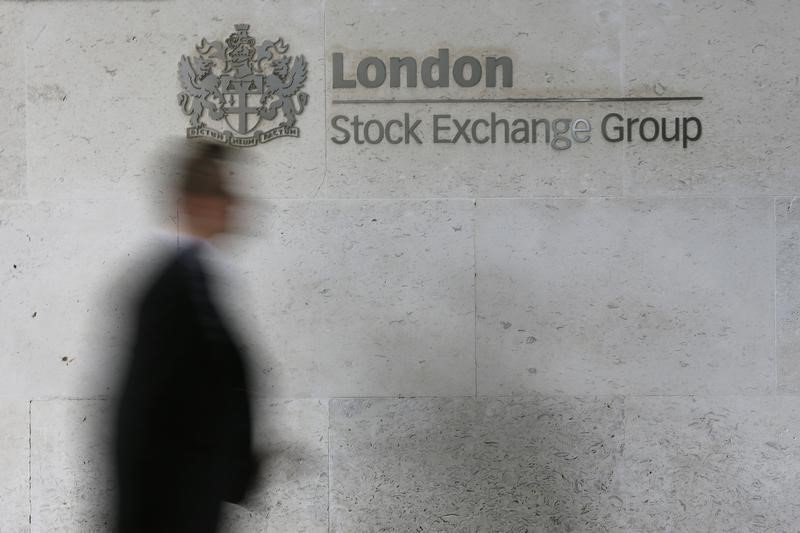By Jamie McGeever
LONDON (Reuters) - Global stocks rose and bond yields fell on Friday, as investors shrugged off slowing global growth and focused instead on the continued stimulus provided by the world's major central banks.
Wall Street's record high on Thursday lifted Asian stocks on Friday, a day that will be packed with key European and U.S. economic data as well as speeches from Federal Reserve chair Janet Yellen and European Central Bank president Mario Draghi.
China's main index leapt nearly 3 percent to a fresh 7-year high, rounding off a weekly gain of 8 percent, its best week this year. Boosted by hopes of further central bank stimulus, it has risen 45 percent in only six weeks.
European shares struggled to match that, but the leading index of European shares was still poised for its biggest gain in six weeks and Germany's DAX its best week since January.
A batch of soft manufacturing data on Thursday from the United States, China and Germany pointed to sluggish global growth but cemented investor hopes that central banks will continue to do all they can to support activity.
To that end, Yellen and Draghi will take center stage on Friday. Earlier this week Fed meeting minutes appeared to push the timing of the first U.S. rate hike out to late 2015, while the ECB's Benoit Coeure said the ECB could increase its bond purchases in the near-term.
"Risk assets continue to edge higher ... and Draghi is set to make a speech. Listen out for further assurance of the QE program running until September 2016 but more importantly any clues as to inflation expectations," said Angus Campbell, senior markets analyst at FxPro in London.
In early trade the FTSEuroFirst 300 index (FTEU3), Germany's DaX and France's CAC 40 (FCHI) were all flat on the day. Britain's FTSE 100 (FTSE) was up 0.3 percent.
Earlier, MSCI's broadest index of Asia-Pacific shares outside Japan (MIAPJ0000PUS) rose 1 percent and Japan's Nikkei rose 0.3 percent. Japanese stocks have been boosted this week by data showing stronger-than-expected first quarter growth. The Bank of Japan kept its policy as widely expected.
U.S. futures pointed to a slightly positive open on Wall Street
BONDS STEADYING
On the data front, U.S. inflation for April is the main event. Price pressures are expected to remain muted, giving the Fed more breathing space in terms of the timing of what will be its first rate hike since June 2006.
The U.S. economy has shown patchy signs of strength and its recovery has not been as robust as expected. Soft U.S. data released overnight - weaker-than-expected existing home sales, manufacturing sector and U.S. Mid-Atlantic business activity - appeared to vindicate the Fed officials' cautious policy stance.
U.S. Treasury yields fell in wake of the soft economic indicators, helping nudge the dollar away from recent highs.
The euro rose 0.4 percent to $1.1160
The dollar also eased slightly to 120.75 yen
The benchmark 10-year German bond yield fell three basis points to 0.60 percent
Analysts at Barclays (LONDON:BARC) noted "tentative" signs that the euro zone bond market was stabilizing after the recent rout that saw Bund yields rocket to 0.80 percent from 0.05 percent. That high is unlikely to be retested any time soon.
"Were financial conditions to tighten further, the ECB
could respond more forcefully," they said in a note on Friday.
In commodities, U.S. crude took a breather, flat on the day at $60.66, after surging nearly 3 percent overnight on data that eased supply glut concerns and fighting in Iraq.
Brent

(This version of the story corrects third paragraph to say Chinese stocks had their best week this year, not in a year.)